Here is an interesting comparison for return in finally block, among - Java/C#/Python/JavaScript: (archive link)
Return From Finally
Just today I was helping with some bug in Java and came across
interesting problem - what happens if you use return within try/catch
statement? Should the finally section fire up or not? I simplified the
problem to following code snippet:
What does the following code print out?
class ReturnFromFinally {
public static int a() {
try {
return 1;
}
catch (Exception e) {}
finally{
return 2;
}
}
public static void main(String[] args) {
System.out.println(a());
}
}
My initial guess would be, that it should print out 1, I'm calling
return, so I assume, one will be returned. However, it is not the
case:

I understand the logic, finally section has to be executed, but
somehow I feel uneasy about this. Let's see what C# does in this case:
class ReturnFromFinally
{
public static int a()
{
try {
return 1;
}
catch (System.Exception e) {}
finally
{
return 2;
}
}
public static void Main(string[] args)
{
System.Console.WriteLine(a());
}
}

I prefer much rather this behavior, control flow cannot be messed with
in finally clause, so it prevents us from shooting ourself in the
foot. Just for the sake of completeness, let's check what other
languages do.
Python:
def a():
try:
return 1
finally:
return 2
print a()

JavaScript:
<script>
function ReturnFromFinally()
{
try
{
return 1;
}
catch (e)
{
}
finally
{
return 2;
}
}
</script>
<a onclick="alert(ReturnFromFinally());">Click here</a>

There is no finally clause in C++ and PHP, so I can't try out the last
two languages I have compiler/interpreter for.
Our little experiment nicely showed, that C# has the nicest approach
to this problem, but I was quite surprised to learn, that all the
other languages handle the problem the same way.



